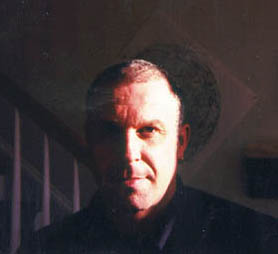
29 June 2010
by Justice Putnam
Black Kos, Tuesday's Chile, Poetry Editor
Much has been written about Gwendolyn Brooks' poem, The Ballad of Rudolph Reed. It has been speculated that Brooks was condemning the reaction Reed took to the injury of his daughter by racists in his new neighborhood; that he was at fault for moving into a white enclave he should have been wise enough to avoid. Others have speculated that she was advocating his reaction and that he was justified in spite of the tragedies that followed.
Still others state that she was simply recording the facts.
I say it is none of these. I say that Brooks is showing that all reactions don't arise out of a vacuum; that for every action, there is indeed, a reaction. Whether the actions and/ or reactions are justified, is up for the reader to conclude.
What is certain is that a man and woman have a breaking point, no matter how oaken they may be; that a man and woman can only be pushed so far.
What is certain is that tragedy upon tragedy has been perpetuated on the Black in America; and any reaction, whether rioting in the streets or taking vengeance on the perpetuators of hate, arises not out of one instance that set the world ablaze; but many instances. What is certain is that few will remember or care what caused the reaction, save for those who reacted; and no bandage after the fact will lessen the pain of the tragedies that occurred; and are bound to occur later.
The Ballad of Rudolph Reed
Rudolph Reed was oaken.
His wife was oaken too.
And his two good girls and his good little man
Oakened as they grew.
"I am not hungry for berries.
I am not hungry for bread.
But hungry hungry for a house
Where at night a man in bed
"May never hear the plaster
Stir as if in pain.
May never hear the roaches
Falling like fat rain.
"Where never wife and children need
Go blinking through the gloom.
Where every room of many rooms
Will be full of room.
"Oh my home may have its east or west
Or north or south behind it.
All I know is I shall know it,
And fight for it when I find it."
The agent's steep and steady stare
Corroded to a grin.
Why you black old, tough old hell of a man,
Move your family in!
Nary a grin grinned Rudolph Reed,
Nary a curse cursed he,
But moved in his House. With his dark little wife,
And his dark little children three.
A neighbor would look, with a yawning eye
That squeezed into a slit.
But the Rudolph Reeds and children three
Were too joyous to notice it.
For were they not firm in a home of their own
With windows everywhere
And a beautiful banistered stair
And a front yard for flowers and a back for grass?
The first night, a rock, big as two fists.
The second, a rock big as three.
But nary a curse cursed Rudolph Reed.
(Though oaken as man could be.)
The third night, a silvery ring of glass.
Patience arched to endure,
But he looked, and lo! small Mabel's blood
Was staining her gaze so pure.
Then up did rise our Rudolph Reed
And pressed the hand of his wife,
And went to the door with a thirty-four
And a beastly butcher knife.
He ran like a mad thing into the night
And the words in his mouth were stinking.
By the time he had hurt his first white man
He was no longer thinking.
By the time he had hurt his fourth white man
Rudolph Reed was dead.
His neighbors gathered and kicked his corpse.
"Nigger--" his neighbors said.
Small Mabel whimpered all night long,
For calling herself the cause.
Her oak-eyed mother did no thing
But change the bloody gauze.
-- Gwendolyn Brooks




